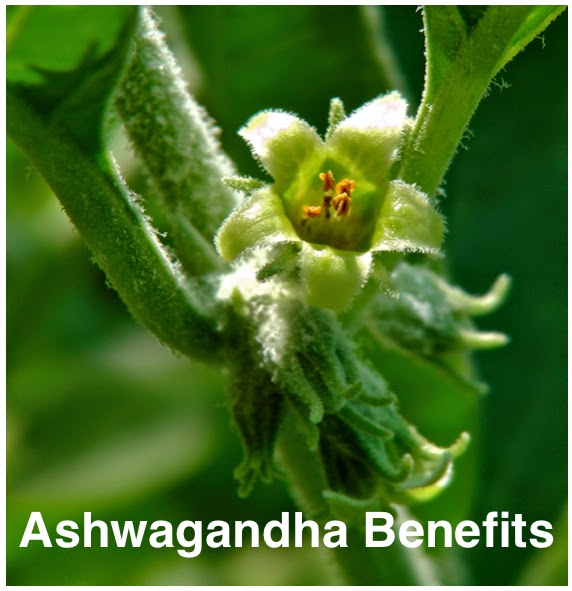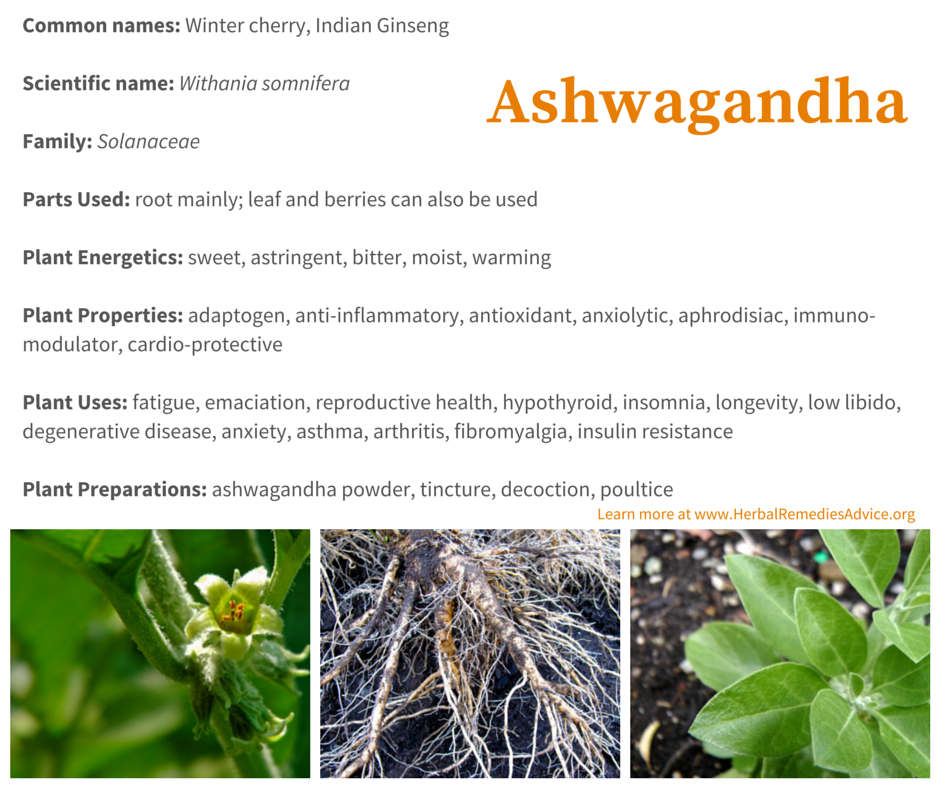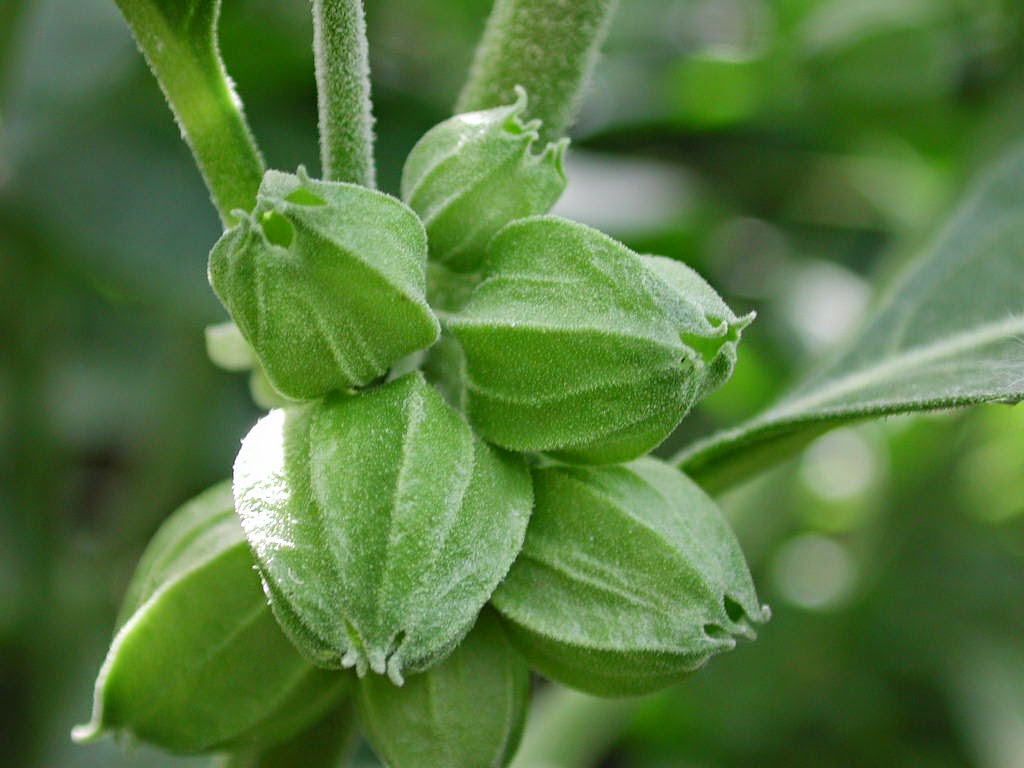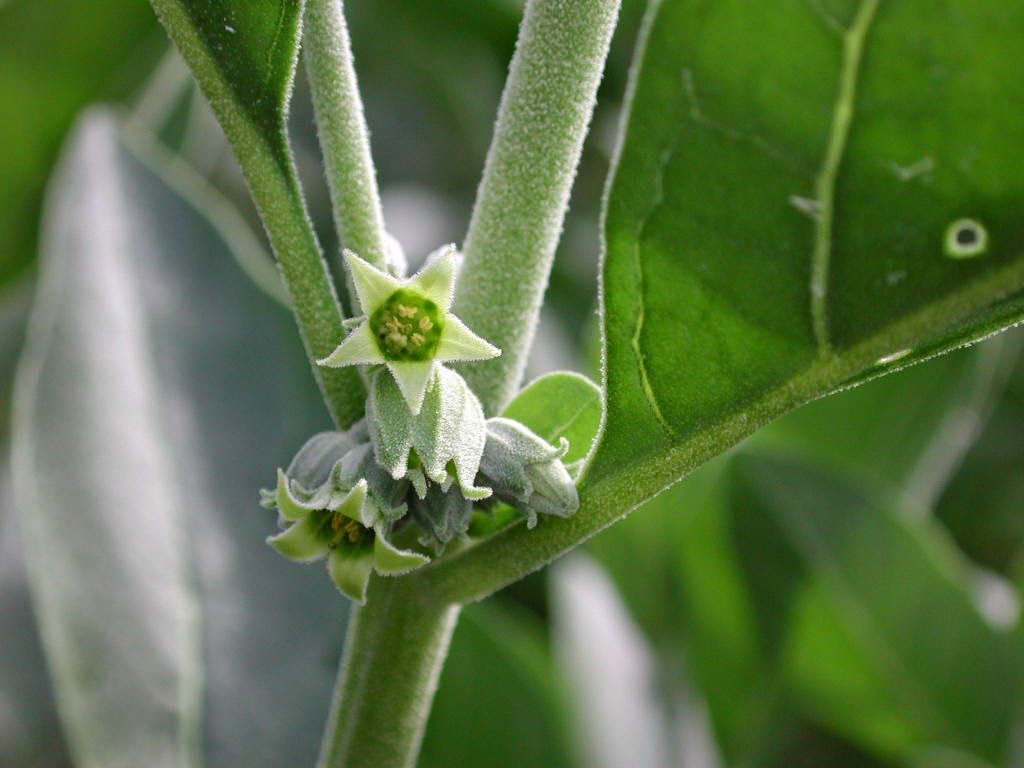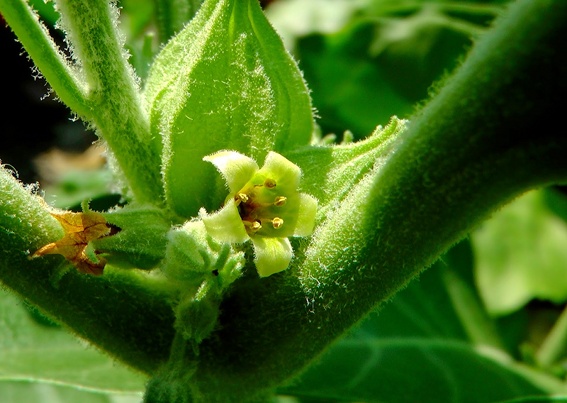Get weekly tips, recipes, and my Herbal Jumpstart e-course! Sign up for free today.
Ashwagandha Benefits
Share this! |
|
Ashwagandha is one of the most revered herbs in the Ayurvedic tradition, and it’s easy to see why! This amazing herb can be a wonderful ally if you’re struggling with sleep issues, anxiety, and stress – and even if you’re not. It’s a wonderfully grounding and rejuvenative herb that, when taken at the right dose, can support your health in so many ways. (However, it is worth noting that ashwagandha can have some side effects and isn’t for everyone - so be sure to tune in to learn about whether it’s the right herb for you!)
I love to work with ashwagandha, and one of my favorite recipes for it is my Ashwagandha Date Treats. You can download a beautifully illustrated recipe card for these delicious treats from the section below!
By the end of this episode, you’ll know:
► How ashwagandha works to help improve your sleep and reduce anxiety
► Who can benefit from ashwagandha – and who should avoid taking this herb
► Why you can’t always rely on the recommended dosage on herbal products you buy at the store
► Five tips for growing and harvesting ashwagandha
► and so much more…
-- TIMESTAMPS -- for Ashwagandha Benefits
- 00:05 - Introduction
- 01:46 - Student spotlight
- 03:37 - Introduction to ashwagandha
- 04:27 - Withania somnifera energetics
- 05:05 - Ashwagandha for sleep
- 10:07 - Ashwagandha and anxiety
- 11:46 - Ashwagandha side effects
- 12:40 - How to work with Withania somnifera
- 15:35 - Ashwagandha for sleep recipe: Ashwagandha Date Treats
- 17:22 - Growing and harvesting ashwagandha
- 18:53 - Rooted Medicine Circle online course
- 21:18 - Herbal tidbit
Download Your Recipe Card!
l
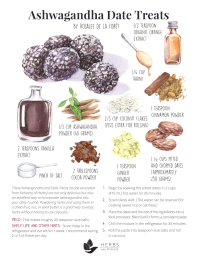
Transcript of the Ashwagandha Benefits Video
|
In today’s episode, I’m sharing about one of the most revered herbs in Ayurvedic tradition, that’s Withania somnifera, commonly known as ashwagandha. If you’re struggling with sleep issues, you won’t want to miss learning about ashwagandha benefits for sleep. I’ll also share three crucial tips on how to work with Withania somnifera for your sleep so you can avoid the common mistakes I see people make all the time. I’ll give you a hint: it has to do with dosage and timing. |
Plus, we’ll discuss some important ashwagandha side effects you should be aware of when using ashwagandha for sleep. And stick around because I’ll be sharing a delicious recipe for Ashwagandha Date Treats that can help support your nightly peaceful slumber.
Hello and welcome to the Herbs with Rosalee Podcast, a show exploring how herbs heal as medicine, as food and through nature connection. I’m your host, Rosalee de la Forêt. I created this Channel to share trusted herbal wisdom so that you can get the best results when relying on herbs for your health. I love offering up practical knowledge to help you dive deeper into the world of medicinal plants and seasonal living.
Each episode of the Herbs with Rosalee Podcast is shared on YouTube, as well as your favorite podcast app. Also, to get my best herbal tips as well as fun bonuses, be sure to sign up for my weekly herbal newsletter.
Tired of herbal overwhelm?
I got you!
I’ll send you clear, trusted tips and recipes—right to your inbox each week.
I look forward to welcoming you to our herbal community! Know that your information is safely hidden behind a patch of stinging nettle. I never sell your information and you can easily unsubscribe at any time.
Okay, grab your cup of tea and let’s dive in.
First up is the Herbs with Rosalee Student Spotlight! Each week, we’ll take a moment to celebrate one of our amazing students and their inspiring contributions to our herbal learning community.
We are shining our spotlight on Robert Daniel this week. He’s in the Puget lowlands bioregion of Washington state and was a student in last year’s Rooted Medicine Circle. Robert blew us away with his consistently thoughtful and detailed reviews on the Certificate Path, He is quite a talented writer as he is both captivating and concise. Although he exemplified many of the Rooted Medicine Circle ideals through the program, one really stood out was this. He wrote: “For me, the best practice is to gather the plants myself from an area that I have visited for at least 1 year. One year allows me to visit and learn the location that I will be harvesting from through all of its seasons, observing for growth habits, overall health, signs of pesticides, etc. After 1 year, I generally know how much I might be able to harvest without negatively impacting the health of the area or the viability of the plants for the future.” Throughout the program, Robert showed such respect for and reciprocity with the land around him. His capstone project was a very insightful oracle highlighting Pacific Northwest Plants - it totally blew us away!
To honor Robert’s contributions, Mountain Rose Herbs will be sending him a $50 gift certificate to stock up on sustainably grown and harvested herbal supplies. Mountain Rose Herbs is my go-to for high-quality organic spices, herbal remedies, and even hard-to-find botanicals. They ship all over the U.S. and have a massive selection of products to fuel your herbal adventures. Thank you, Mountain Rose Herbs, for supporting our amazing students!
Get your own high quality herbs from Mountain Rose Herbs with this link.
Withania somnifera is an amazing herb, especially when it comes to supporting healthy sleep cycles. But ashwagandha isn’t just for sleep. It’s also a calming herb that can help with anxiety--an issue that’s often intertwined with sleep disorders. Whether you are new to herbalism or you’re a seasoned practitioner, this episode has something for everyone. I’ll be breaking down the energetics of ashwagandha, looking into its historical uses, and diving into the latest research. And, as always, you’ll want to stay tuned to the very end for that final herbal tidbit.
But before we dive in, I’d love to hear from you! Have you ever used ashwagandha for sleep? What was your experience with Withania somnifera? Leave a comment at the bottom of this page or reach out on social media. Your insights could help others on their herbal journey.
Okay, let’s dive in.
Withania somnifera Energetics
Let’s start by exploring the energetics of ashwagandha. In Ayurvedic tradition, ashwagandha is considered a “rasayana” or a rejuvenative herb, and it’s known for its warming and grounding qualities. This makes it particularly beneficial for individuals who are feeling depleted, anxious and unable to settle into a restful sleep.
It’s often used to balance the Vata dosha, which, when out of balance, can lead to restless nights. Ashwagandha can be slightly drying, so it’s a good idea to formulate with it carefully if someone is presenting with more dryness.
Ashwagandha Benefits for Sleep
Ashwagandha has been relied on for centuries as a natural remedy to enhance sleep quality. The species name somnifera actually translates to “sleep-inducing,” highlighting its traditional use as a sedative and relaxing nervine.
Modern research supports these historical uses, showing that ashwagandha can help reduce the time it takes to fall asleep and improve overall sleep quality. Studies suggest that one way it may work is by regulating cortisol levels, helping your body to manage stress more effectively, while in turn, it promotes a deeper sleep.
Let’s look at a few specific studies regarding Withania somnifera for sleep.
In a randomized control trial published in 2021, researchers tested ashwagandha’s ability to promote sleep in both healthy volunteers and people diagnosed with insomnia. This was done alongside a placebo, so some people received ashwagandha and others didn’t.
At the end of the eight-week trial, they found that in both the healthy and the insomnia folks, those who took the ashwagandha root extract, there was a significant improvement in sleep parameters. And notably, the improvement was found to be more significant in the people with insomnia rather than those without sleep issues.
The researchers in this study concluded: “The present study confirms that Withania somnifera root extract can improve sleep quality and can help in managing insomnia.” They also noted that the ashwagandha root extract was well-tolerated by all the participants irrespective of their health condition and age.1
Ashwagandha has a long history as a powerful medicine, yet it feels perfectly suited for the challenges of today. Whether you’re juggling with work, family, school or just the daily stress we all experience, there’s growing interest in how herbs like ashwagandha can support us.
I recently came across an interesting study that explored this very topic, focusing specifically on college students. College life is an exciting time, but it’s also no secret that it comes with its fair share of stress and anxiety, and the overwhelming pressure to perform. Many students report that these challenges negatively impact not just their grades, but their overall well-being too. This is where Withania somnifera’s gifts can truly shine.
In this study, 60 college students took either ashwagandha or a placebo for 30 days. The results were really positive. Those who took ashwagandha reported feeling more energized, mentally clear and better able to sleep. In short, ashwagandha helped those students feel more balanced and resilient in the face of their daily stress.2
What I find especially meaningful about this study is that it didn’t just focus on numbers or lab results; it explored the real, lived experiences of those students. Their stories reveal how this humble root can support well-being in profound ways. For students—and really, for all of us—this is a beautiful reminder that herbs offer powerful tools to help us navigate the stresses of modern life.
In another recent eight-week study, researchers explored the effects of a high-concentration ashwagandha root extract on stress and sleep. This study was particularly interesting because it didn’t just look at one dosage; it varied the dosage to see how different amounts of ashwagandha would impact stress, anxiety, and sleep quality.
Sixty adults participated, each experiencing significant levels of stress before the study began. Over the course of eight weeks, they took either 250 mg or 600 mg of this ashwagandha extract, or a placebo, twice daily. The results were pretty impressive. Both the doses of ashwagandha significantly reduced stress levels and lowered serum cortisol, which is often referred to as the “stress hormone.” However, the 600 mg dose had a more pronounced effect, leading to greater reductions in both stress and cortisol levels compared to the 250 mg dose. In addition to these benefits, participants in both dosage groups reported noticeable improvements in their sleep quality.3
What I love about this study is how it reinforces something many of us already know: herbs like ashwagandha can offer profound support in our day-to-day lives, especially when we’re feeling overwhelmed. Whether it’s helping us manage stress or improving our sleep, ashwagandha invites us to find balance and well-being even in the midst of life’s challenges.
So if stress and restless nights have become all too familiar, ashwagandha might just be the herbal ally you need to restore a sense of calm and improve your sleep.
Ashwagandha Benefits for Anxiety
Ashwagandha isn’t just a sleep herb; it’s also well-known for its ability to alleviate anxiety. Since anxiety and sleep disorders often go hand in hand, this dual action makes ashwagandha a particularly powerful herb for those dealing with stress-related insomnia.
In the world of herbal remedies, ashwagandha has certainly earned its place as a go-to herb for managing stress and anxiety. But like many popular herbs, there’s always a need to dig deeper into it to truly understand its effectiveness. I recently came across a fascinating systemic review and meta-analysis that sought to do just that--evaluate the impact of ashwagandha on anxiety and stress across multiple clinical trials.
The study pulled together results from 12 randomized clinical trials, encompassing over 1,000 participants between the ages of 25 and 48. The goal was to determine whether ashwagandha really does live up to its reputation as this stress-busting, anxiety-soothing herb. The results of this study were quite promising: ashwagandha was found to significantly reduce both anxiety and stress levels compared to a placebo.
What’s particularly interesting is that the analysis looked at different dosages and found that ashwagandha have a favorable effect on anxiety up to 12,000 mg per day, and on stress at 300-600 mg per day. This suggests that while ashwagandha is effective, the dosage might play a crucial role in how well it works for different people.4
Ashwagandha Side Effects
Of course, as with any herb, it’s important to be aware of potential side effects. While ashwagandha is generally considered safe for most people, it can cause digestive upset, headaches, or drowsiness in some individuals. It’s also worth noting that ashwagandha may interact with certain medicines, particularly those used for anxiety, depression and thyroid conditions. If you’re pregnant or breastfeeding, it’s best to consult with a healthcare provider before using ashwagandha.
Ashwagandha is in the nightshade family and I have heard concerns from people who are sensitive to things like tomatoes and peppers. But, in my experience and in the experience of many herbalists out there who I’ve asked about this issue, there doesn’t seem to be a crossover between being sensitive to tomatoes and also being sensitive to ashwagandha.
How to Work with Withania somnifera
When I was in clinical practice I would repeatedly hear from clients during their initial visit that they had tried ashwagandha, but it never worked for them. And in every single case, the reason why was immediately obvious.
I would ask them how they were taking Withania somnifera, and it was generally, always capsules that they had bought at the store, and they were taking one to three capsules a day or whatever was recommended on the bottle. This is a very teeny-tiny, small dose. It’s basically the equivalent of taking a little bite of a carrot a day and then thinking you have all your vitamins that you need for the day.
Granted, taking just a couple grams of ashwagandha is fine if you’re looking for a general maintenance dose, but if you are wanting to really effectively address stress, anxiety or sleep issues, then you probably are going to need a lot more than that.
This is the first critical mistake that I see people make with ashwagandha--they take too little. Or simply a dosage that isn’t ideal for them and their situation.
The other mistake that I often see is that because ashwagandha helps to support sleep, people think it’s a sedative or will make them sleepy, and so they take it just before bed. There’s nothing wrong with taking it close to bedtime, but that’s not really how ashwagandha works. You don’t necessarily take it and then fall asleep as a result of it. In fact, be sure to listen to the very end to hear the herbal tidbit about how this plant seemingly has opposite effects.
So, instead, ashwagandha is working on this deeper level to support healthy hormones that then support sleep. I think of it as helping to support healthy sleep cycles, so rather than take a bit of ashwagandha for sleep at night and then expect to be in dreamland five minutes later, this is a plant that’s best when you take it daily in fairly large dosages for an extended period of time. It will work, but don’t expect immediate results.
So, second critical mistake is people taking it at bedtime thinking it’s a sedative. By the way, if you are looking for a short term sedative that you take at night or before you want to go to sleep, then check out my solo podcast episode on valerian or the interview I did with Benjamin Zappin on California poppy.
The last critical mistake I see people make when turning to ashwagandha for sleep is that they approach it as if it’s a miracle cure, without addressing things holistically. Don’t get me wrong, ashwagandha has amazing benefits for sleep. But you are going to get the best results when you address sleep and anxiety issues from many angles such as meditating regularly, getting joyful movement in your day, avoiding or mitigating excess stress, and developing good sleep hygiene.
Ashwagandha Benefits for Sleep Recipe
Now for the fun part: a recipe! These Ashwagandha and Date treats are not only delicious but also an excellent way to incorporate ashwagandha into your daily routine. Powdering herbs and then using them in a dried fruit or nut or seed butter is just a great way to enjoy herbs without having to use capsules.
For this recipe you’ll need:
Ingredients:
- 1 ½ cups pitted and chopped dates (approximately 250 grams)
- 2 tablespoons cocoa powder
- 1/3 cup ashwagandha powder (40 grams)
- 2/3 cup coconut flakes (plus extra for rolling)
- 1/4 cup tahini
- 2 teaspoons vanilla extract
- 1/2 teaspoon organic orange extract
- 1 teaspoon cinnamon powder
- 1 teaspoon ginger powder
- pinch of salt
Directions:
- Begin by soaking the pitted dates in 2 cups (475 mL) hot water for 30 minutes.
- Strain dates well. (The water can be reserved for cooking sweet rice or oatmeal.)
- Place the dates and the rest of the ingredients into a food processor. Blend until it forms a consistent paste.
- Chill the mixture in the refrigerator for 30 minutes.
- Roll the paste into teaspoon-size balls and roll in coconut.
This recipe was published in my first book, Alchemy of Herbs.
Don’t miss out on your free printable recipe card for these Ashwagandha Date Treats just above this transcript!
For those of you watching this episode, you’ll be able to see that I’m here with ashwagandha in the garden. Where I live, ashwagandha grows as an annual. It means it only is going to live for one year and it will die with the frost. Other places that don’t experience the frost can have ashwagandha as a perennial.
When I grow ashwagandha, I start the seeds in March or so. I start them inside. Here, we still have snow on the ground. Start them inside, nurture them for a couple of months and then plant them outside when they’re—yay, tall!—and we have no more frosts coming for the year, hopefully.
That’s a wonderful plant to grow. If you can grow tomatoes or
peppers, you can definitely grow ashwagandha. It’s really fun to watch
it through the seasons. It has these beautiful, tiny little flowers, and
then those grow into these lovely little seed pods. Within those seeds,
once they become ripe, you’ll have the—they’re sometimes called “winter
cherries” and these little bright red berries inside them.
We are getting close to our first major frost and so, I’m actually going to be harvesting these soon. I will dig them up by the roots, harvest the roots, wash them off, then I’ll chop them up and let them dry chopped. Once they’re dried chopped, I’ll probably keep them like that until I’m ready to powder them to make into something like the ashwagandha date treats.
If you’re inspired by what you’ve heard in this episode and you want to dive deeper into the world of herbal medicine learning how to make remedies that truly work, then you’ll love our online course, Rooted Medicine Circle. We’re opening enrollment soon, which includes a sneak peek at our Mini Herbal course. We only open these doors once a year, so be sure to sign up for the waitlist today and secure your spot.
If you’ve enjoyed this video on ashwagandha benefits for sleep and you value trusted herbal information, then I hope you’ll stick around. The best way to get started is to subscribe on YouTube and your favorite podcast app.
One of the best ways to retain and fully understand something you’ve just learned is to share it in your own words. With that in mind, I invite you to share your takeaways with me and the entire Herbs with Rosalee community.
I deeply believe that this world needs more herbalists and plant-centered folks, and I’m so glad that you’re here as part of this herbal community. Also, a big round of thanks to the people all over the world who make this podcast happen week to week:
Emilie Thomas-Anderson is the Project Manager who oversees the entire podcast operation from guest outreach, to writing show notes, and on and on. I often tell people I just show up! Emilie does most of the heavy lifting.
Nicole Paull is the operator for the entire Herbs with Rosalee School and Community. She keeps an eagle eye view on everything to ensure it’s running smoothly.
Francesca is our fabulous video and audio editor. She not only makes listening more pleasant. She also adds beauty to the YouTube videos with plant images and video overlays. Tatiana Rusakova is the botanical illustrator who creates gorgeous plant and recipe illustrations for us. I love them and I know you love them. Once the illustration is ready, Jenny creates the recipe cards, as well as the thumbnail images for YouTube.
Alex is our behind the scenes tech support and Social Media Manager, and Karin and Emilie are our Student Services Coordinators and Community Support. If you’ve written in with a question, undoubtedly, you got help from them.
For those of you who like to read along, Jennifer is who creates the transcripts each week. Xavier, my handsome French husband, is the cameraman and website IT guy.
It takes an herbal village to make it all happen including you. Thank you so much for your support through your comments, reviews and ratings.
Okay, you’ve lasted to the very end of the show which means you get a gold star and this herbal tidbit…
Withania somnifera is sometimes referred to as “Indian ginseng” due to its ability to support overall vitality and resilience.
While it’s often used to promote sleep, as I’ve been sharing, it’s also a fantastic herb for boosting energy levels during the day, which really showcases its incredible adaptogenic qualities. Whether you’re looking to relax or revitalize, ashwagandha might just be the herb you’ve been searching for.
Citations for Ashwagandha Benefits
Click to show/hide.
Rosalee is an herbalist and author of the bestselling book Alchemy of Herbs: Transform Everyday Ingredients Into Foods & Remedies That Healand co-author of the bestselling book Wild Remedies: How to Forage Healing Foods and Craft Your Own Herbal Medicine. She's a registered herbalist with the American Herbalist Guild and has taught thousands of students through her online courses. Read about how Rosalee went from having a terminal illness to being a bestselling author in her full story here.
